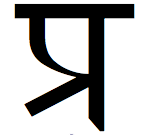22. Elisa Freschi on Mimamsa
Mīmāṃsā expert Elisa Freschi speaks to Peter about philosophical issues arising from the interpretation of the Veda.
Themes:
• E. Freschi, “Desidero Ergo Sum: The Subject as the Desirous One in Mīmāṃsā,” Rivista di Studi Orientali 80 (2007), 51–61.
• E. Freschi, Duty, Language and Exegesis in Prābhākara Mīmāṃsā (Leiden: 2012).
• E. Freschi and T. Pontillo, Rule-Extension-Strategies in Ancient India: Śrautasūtra, Mīmāṃsā and Grammar on Tantra- and Prasaṅga-Principles (Vienna: 2013).
• E. Freschi, “Did Mimamsa Authors Formulate a Theory of Action?” in N. Mirnig et al. (eds), Puṣpikā: Tracing Ancient India Through Texts and Traditions (Oxford: 2013), 151-72.
• E. Freschi, “Freedom Because of Duty: the Problem of Agency in Mīmāṃsā,”, in E. Bryant and M. Dasti (eds), Free Will, Agency, and Self-hood in Indian Philosophy (Oxford: 2014), 137–63.
• E. Freschi, “Does the Subject Have Desires? The Prābhākara Mīmāṃsā Answer,” in G. Ciotti (eds), Puṣpikā 2:Tracing Ancient India Through Texts and Traditions (Oxford: 2014), 55–86.
• E. Freschi, “Quotations, References, etc. A Glance on the Writing Habits of a Late Mīmāṃsaka,” in E. Freschi (ed.), Special Issue of the Journal of Indian Philosophy 43 (2015), 219–55.
Elisa Freschi's blog on Indian philosophy.
Vol. 2.1 (2017) of the Journal of World Philosophies with papers by Elisa Freschi and others, on language in Indian philosophy.







Comments
Prabhakara
In the interview, when talking about unattached action (at about 20-22 minutes), it sounds like Prabhakara's explanation of unattached action turns the traditional agent into a kind of human instrument. If Arjuna's should fight not out of desire to fulfil his warrior dharma. And we reject that his desire is devotion to the divine, then it seems like fighting with unattached actions makes the desires of fate central, which makes the self the instrument and your actions the ritual.
I'm guessing, however, if this was intended, it would have been stated explicitly. But I do not see how else we can keep the agent/desire structure while being unattached to the desire. How might Prabhakara respond?
In reply to Prabhakara by Alexander Johnson
Desire and ritual
Yes, I think that there is at least a tendency within Mimamsa to put the ritual at the center of the analysis to the point that the person who performs the ritual is simply subsumed into it as a procedure, as if the ritual is using the actor rather than the other way around. One way to think about this might be that the pious sacrificer is subordinating themselves to the needs of the ritual, rather than making selfish desire the trigger for carrying the ritual out (you can see how this might be a revision of earlier, more desire-based, theories of rituals in reaction to pressure from Buddhism etc).
Add new comment